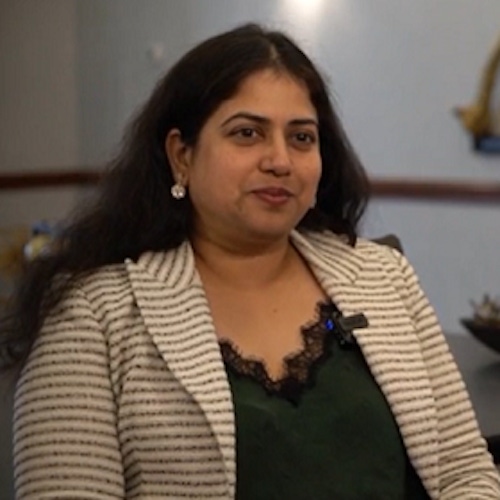'Get comfortable with being uncomfortable,' Google's Joshi advises on women leadership programs
During a fireside chat at the Women in Telecommunications Workshop, Joshi shared her insights into how organizations can develop informal and formal programs to support women's upward career trajectory.

BIG 5G EVENT, DENVER – As they implement internal initiatives that support women in leadership roles in the telecom industry, organizations need to get comfortable with being uncomfortable, said Google's Prajakta Joshi.
Figure 1: Prajakta Joshi, Google 
During a fireside chat at the Women in Telecommunications Workshop here, Joshi shared her insights into how organizations can develop informal and formal programs that support women's upward career trajectory. In addition, internal programs can support the development of both soft and technical skills, provide access to new opportunities and support inclusivity, she said.
"Just because you diversify the workplace doesn't mean it's going to be inclusive," Joshi said. "We started looking at providing communities and safe spaces."
In building supportive programs, Joshi recommends starting with formal programs that have buy-in from top executives. "The commitment of senior leadership is the most critical part to the success of the programs that are put together," she said.
Joshi also emphasized the importance of having metrics – such as how many women are in the C-suite – to track the success of internal programs. Taking a look at existing data about how many women are already in leadership roles or on boards at an organization can also be useful quantitative information to show senior executives the need for these leadership programs.
"Once you have this data, it's much easier to highlight the issues and the extent of the issues, and get buy-in not just from leadership but from your peers in showing the problem you need to collectively solve," said Joshi. She didn't downplay that developing a successful leadership program can be challenging at times, noting that employees committed to sparking change will have to get "comfortable with being uncomfortable."
"When you first slice and dice metrics for anyone, especially at the leadership level, it's shocking. Eventually they understand the extent of the problem and those metrics come in handy," said Joshi. She also recommends working with HR departments to ensure the protection of sensitive employee data when conducting surveys that provide metrics to support the creation of leadership programs. It's also important not to put a program in place just to check a box, she added, arguing that it needs to make a real difference in the successful careers of employees.
Joshi shared examples of leadership programs she has participated in through Google that have been a boon to her own career. One such program is the Leadership Consortium, which is "where Google partners with Harvard Business school ... to broaden people's experience, their ability to manage teams, and addresses facets of leadership such as 'how do you build trust?'" said Joshi.
Informal programs can also be useful, such as mentoring and sponsorship programs, said Joshi. Google Cloud has backed some "grassroots programs" that employees have developed to further their leadership skills and access to career mentors and sponsors, she said.
Finally, for these programs to have continued success, it's important to have men as allies, said Joshi. After all, lasting change is a team effort.
Related posts:
— Kelsey Kusterer Ziser, Senior Editor, Light Reading
About the Author(s)
You May Also Like












